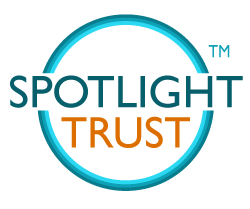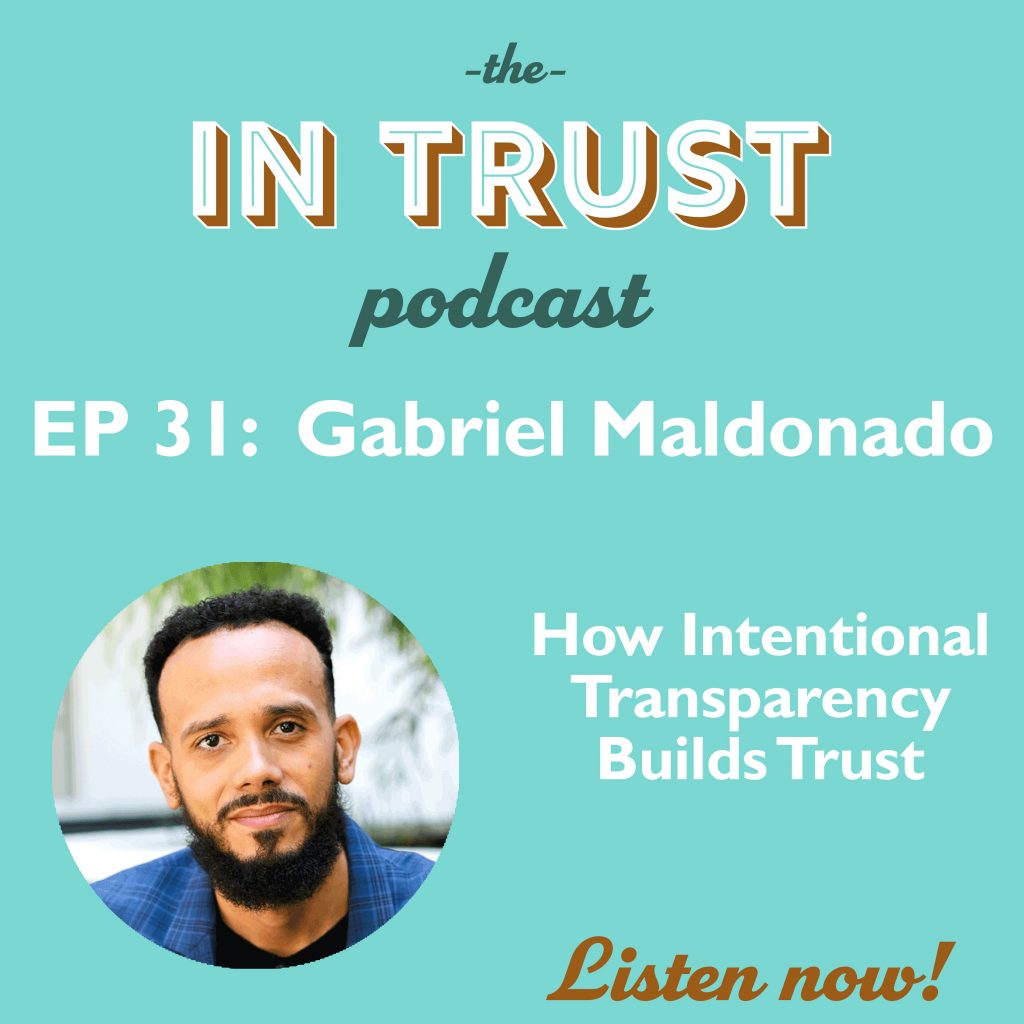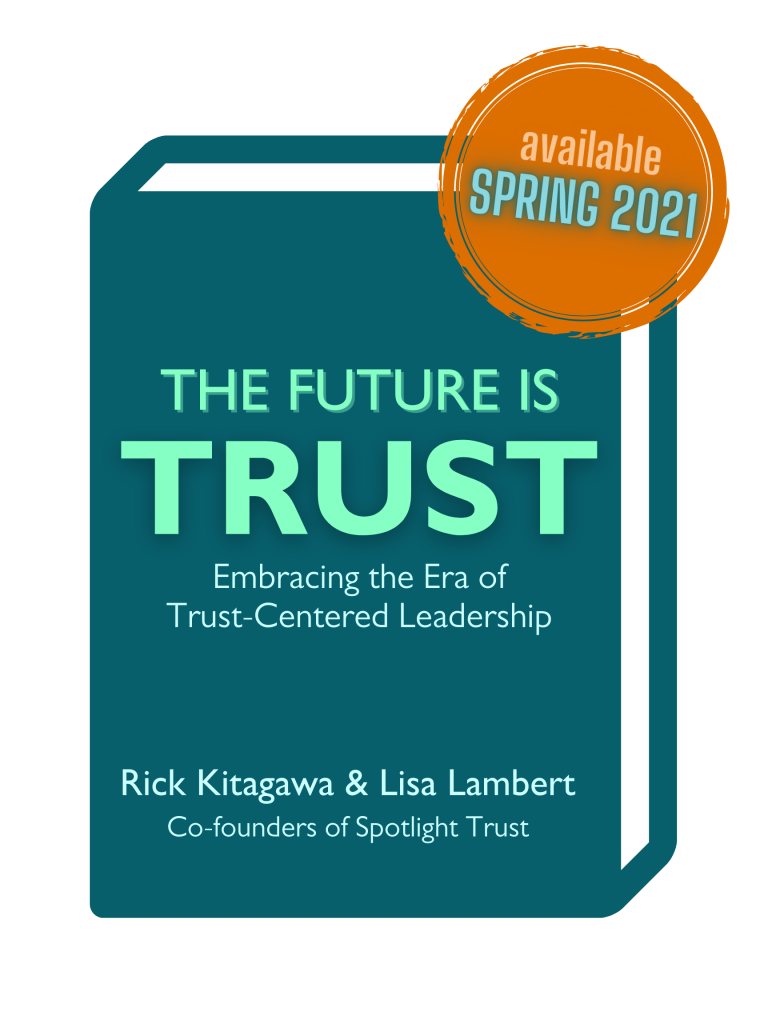What’s the difference between being transparent and being intentionally transparent? How can you go about cultivating a culture of intentional transparency with all your stakeholders when transparency is extremely uncomfortable (at first)? Why is this effort worthwhile when it comes to building trust and resilience while reducing red tape and boosting innovation and creativity?
We dove into these questions and more with Gabriel Maldonado (who might be familiar if you watched or listened to our two-part series on Understanding and Addressing Medical Mistrust).
Gabriel is the Founder and CEO of TruEvolution, a community-based organization out of Riverside, California that fights for health equity and racial justice to advance the quality of life and human dignity of LGBTQ+ people. As a former member of the Presidential Advisory Council on HIV/AIDS under President Obama, Gabriel works to elevate the representation of minority community-based organizations in state and federal policy priorities. In addition to his work at TruEvolution, Gabriel continues his advocacy serving on regional boards and global organizations in addition to advising industry leaders as an advisory board member for ViiV Healthcare, Janssen Therapeutics, and Merck & Co.
We were grateful to have a chance to reconnect with Gabriel for a candid conversation on the role intentional transparency plays in building trust, culture, organizations, and community. Gabriel was generous in sharing lessons he’s learned along the way in building TruEvolution from the ground up, why his team means so much to him, and how he has evolved as a leader committed to fostering an entrepreneurial, innovative, and creative organization that reflects the personalities and contributions of all involved.
If being transparent has ever made you feel even the tiniest bit uncomfortable or you’re interested in practical ways to build a culture of transparency and trust beyond your organization into your network of stakeholders, then you’ll want to give this conversation with Gabriel a listen!
Overview of Episode 31: How Intentional Transparency Builds Trust with Gabriel Maldonado
Talking Points
- The origin story of TruEvolution, which Gabriel started when he was 18
- How Gabriel has learned how to build trust through building TruEvolution
- The problem with the romanticization of the nonprofit and charitable sectors and perspective that there has to be sacrificing in order to be credible or called to do the work
- How Gabriel has thought about investing in his team while navigating challenges and organizational constraints of the nonprofit sector
- Powerful draws for people in the nonprofit sector that lead to innovative, minimally bureaucratic ways to help people
- The power of enabling your teams to pioneer their own ideas and create an entrepreneurial spirit
- Little things Gabriel does as a leader to encourage his staff to pioneer their own ideas and how this animates an entrepreneurial spirit
- How transparency is extremely uncomfortable – at first – and the importance of intentional transparency
- How Gabriel overcame a mistake he used to make in managing his relationship with his board by learning to leverage an approach of intentional transparency to cultivate greater trust and understanding
- The importance of building and cultivating relationships with all your stakeholders on a regular basis
- Why Gabriel chooses to be transparent about how he is really doing as a leader and how this has helped him build connection and trust with others
- Why Gabriel’s team are the most important people in his life and why he tells them regularly that he is grateful for them and the work they do
- The importance of having an openness in discussing our flaws, desires, and challenges, especially among leadership, so that we can better support one another
- How transparency can be a great motivator for a team
- Gabriel role as a leader to to support his team members ensure they don’t burnout
- How Gabriel has had to heal and address trauma so he could develop trust in himself and how some of the ways he has built a toolbox of self-care he uses on a regular basis
- How there is no hierarchy on what is a “good culture” and how organizational culture-building requires being intentional about trade-offs and corresponding equitable challenges
- How core principles and tenants can be a unifying code for cultural building
- Why Gabriel thinks it’s important to document some core principles, tenants, and cultural norms of an organization, and why it’s important to leave some undocumented
- How Gabriel focuses on outcomes and equips his team to bring their own approach to process by agreeing on a set of guidelines upfront
- How organizations tend to put in processes for redundancy and out of insistency and what to do instead to better inspire innovation and creativity
- How fear, a reactive mindset, and an overabundance of red tape that stifle innovation and creativity can trickle down through networks of organizations and how to navigate this to make it easier for people to do their jobs effectively
- Why not all money is good money and the importance of grantees being aligned with their funders on culture
- How Gabriel’s team has embraced co-creation and their simple guardrails for decision-making
Quotables
“As I began to trust myself more and become more confident in my own leadership and that I did know what I was doing and when I didn’t, I knew who to ask for help, I think that gave way to us, attempting at least, to try and have a culture of trust, where we trust and are open and honest with each other. I extend that to my board of directors who I have an extremely bidirectional transparent relationship with, and have regular and ongoing communication with our funders, not just telling them about our successes, but giving them progress notes along the way of our challenges.” – Gabriel Maldonado
“As the organization grows, there has to be a reinvestment in the team’s financial well being. I started to become very aware that my team has families, and they have kids, and they have husbands and wives and caregivers, and that they are caregivers to people and so they need resources. But I think beyond that, they need to also come to work and feel emotionally and spiritually invested in a way that it’s their own journey.” – Gabriel Maldonado
“Allowing my staff to cultivate those ideas really promoted an entrepreneurial culture within the organization. It’s important to let my departments and teams pioneer their own ideas and to find the dollars to be able to support their out-of-the-box ideas, even if they’re only temporary so we can see if it works to see if and it’s something that could shape outcomes. I think those are little subtle things that I’ve tried to do within their actual scope of work to make doing their job a little bit more enjoyable.” – Gabe Maldonado
“Transparency, at first, is extremely uncomfortable, and it is uncomfortable for anyone under any circumstances. Transparency involves revealing things of a private nature in which there was a great deal of context within it and now you have to let people see something that they may have limited or no context at all. So there’s an anxiety around interpretation. You want it to be read correctly, you want to be understood, you want to make sure that you’re in the green light. There’s a worry.” – Gabriel Maldonado
“That approach is in intentional transparency: it’s not just being transparent when it’s asked for.”- Gabriel Maldonado
“It’s important that I’m transparent with them about how I am as a leader, because that’s important too.” – Gabriel Maldonado
“Just being able to talk openly and honestly about what’s happening, you find that they [board, funders, stakeholders] aren’t as much of a Boogeyman as they may have been perceived to be. They really are just people who want to understand, who want to know what’s going on, and who want to know how do we best achieve our outcomes. We can get to those outcomes and work through that together as long as there’s an openness about expectation and deliverable.” – Gabriel Maldonado
“My team are the most important people in my life. They have saved me and rescued me and healed me and loved on me, and championed me, when I literally felt like no one else had my back.” – Gabriel Maldonado
“I try to have as many individual one-on-one conversations with my leadership. I talk to them very directly and let them know that there is an openness about discussing our flaws. ‘So you can feel free to tell me when I do something that’s off and I’m going to let you know when there is something that’s off because we want to both make each other stronger and better. So when we have our one-on-ones, let’s just talk about it. Let’s just go at it, ‘What’s going on? What’s happening?’ I think that casualness with being able to discuss both our desires as well as our challenges and frustrations with each other is really great.” – Gabriel Maldonado
“It’s a system of built trust. My team rewards me for the emotional labor that it takes to go that far with them, because it is laborsome on the leader to do that. My team rewards me where I don’t even have to ask them to put in the extra mile. They have a by-any-means-necessary mindset and they will work as hard as needed to, so I don’t have to drive the ship. In that regard, my job is really to make sure that, as they do that, I’m looking out for their wellness and self care so that they don’t burn their own selves into the ground. That’s all I really need to be doing. Because they push themselves hard.” – Gabriel Maldonado
“I am a flawed, healing, and hopeful person, like anyone else. I got into this field because I was trying to find healing from a childhood and adolescence that really, really strained a young, black, brown, colored boy, from Compton. It really was a set of experiences that I had to figure out a way to maneuver. Trusting in myself required a healing from a great many things that the world told me that I was not good enough, or smart enough, or a lot of enough. So that was the process that I had to begin with.” – Gabriel Maldonado
“When you can start to put together those pieces of self-care, and also begin to establish a counsel and have strategic advisors, you begin to have so many different mirrors of reflection and healthy tools in your toolbox to start to cultivate a sense of trust in your leadership.” – Gabriel Maldonado
“There really is no hierarchy on what is a “good culture.” – Gabriel Maldonado
“No one should be trying to be like us. What they should be doing is identifying a set of core principles and tenants. You, your company, your leadership, and everybody that’s in place with all the different personalities – you all can come together and get aligned on a set of agreeable principles and cultural norms.” – Gabriel Maldonado
“I’m about outcomes. ‘Did you get it done? Is it done? Is it finished? Is the box checked?’ That’s all I want to know. As for your process of how you got there, I am flexible and negotiable. I don’t really need to overly monitor. We just need to agree on a set of guidelines, meaning you’re going to get this done at this time, this is what it’s going to look like, this is what we’re trying to achieve, these are the people that you’re going to work with, and these are the milestones in which you’re going to inform me. ‘Got it? Good. All right, get onto your work!’” – Gabriel Maldonado
“You want to have these sort of loose, fixed norms that you can move with. The effort in that is to give freedom which allows for innovation and creativity. You only put in regulation, rules and process as it relates to fixing a lingering problem with that, if there are lingering problems. So that is a response, but you don’t create these things without necessity. Or if they’re preventative, you’re preventing a problem that you see is about to happen. But I think often people put in processes for redundancy and out of insistence and we have to be mindful and vigilant of that.” – Gabriel Maldonado
Show Notes
- Spotlight Trust’s two-part series on Understanding and Addressing Medical Mistrust that featured Gabriel
This episode sponsored by:
The Future Is Trust
Embracing the Era of Trust-Centered Leadership
There’s a lot of uncertainty about the future, but one thing we are sure about is that The Future Is Trust. Which also happens to be the title of our forthcoming book.
The Future is Trust: Embracing the Era of Trust-Centered Leadership will be available in Spring 2021.
We are so excited to bring this reimagination of what a leadership book can be.
Check out thefutureistrust.com for book launch details, special previews, exclusive pre-order specials, and more.







